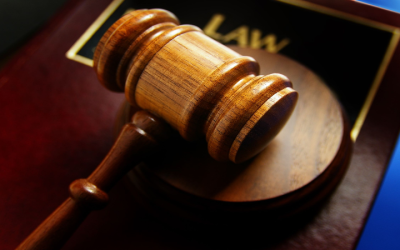If someone is arrested in Phoenix, one of the first questions they or their family may have is: “Will I be eligible for bail?” Bail eligibility determines whether someone can be released from jail while waiting for their court date, and it depends on a number of legal and personal factors. Understanding how bail is decided can help people prepare and respond more effectively.
What Does Bail Eligibility Mean?
Being eligible for bail means a judge has the option to allow someone to be released from jail by paying a financial guarantee (bail). Not all arrests result in bail, and some cases may result in being held without the chance to post bail — especially for serious or violent crimes.
In Phoenix and throughout Arizona, the process is guided by state law but also takes into account the local court’s discretion.
Key Factors That Affect Bail Eligibility
1. Type of Offense
The nature of the charges plays a big role. Non-violent offenses, like traffic violations or minor theft, are more likely to qualify for bail. Serious crimes such as murder, sexual assault, or crimes involving weapons may result in bail being denied.
2. Flight Risk
If a person is seen as likely to leave town or avoid court, a judge may deny bail. Things that raise flight risk concerns include:
- No permanent address
- History of missing court
- Out-of-state residency
3. Criminal History
Someone with multiple prior arrests or convictions may be considered a higher risk. Judges often check how a person behaved on previous pretrial releases.
4. Community Ties
Strong local connections — like family, employment, or community involvement — can increase the chance of being granted bail. The idea is that someone with roots in Phoenix is more likely to return to court.
5. Threat to Public Safety
If the court believes releasing the person could endanger others, bail can be denied. This is especially true in cases involving domestic violence, gang activity, or threats of harm.
How the Bail Decision Is Made in Phoenix
After an arrest, the person is taken to jail and scheduled for an initial appearance, usually within 24 hours. During this appearance, a judge:
- Reviews the charges
- Looks at the person’s record
- Considers arguments from prosecutors and defense attorneys
- Decides whether to set bail, deny it, or release the person without requiring bail (release on own recognizance)
Judges have a lot of discretion but follow Arizona’s bail laws, including Article 2, Section 22 of the state constitution, which outlines when bail must or must not be granted.
What If Bail Is Denied?
If bail is denied in Phoenix, the person can request a review or bail hearing through their attorney. In some cases, the decision can be appealed or revisited if new information comes to light.
Even if bail is allowed, the amount may be set so high that it’s not realistic for the person or their family to pay. In such cases, a bail bond agency might help by posting a surety bond for a percentage of the full amount.
Tips for Improving Bail Eligibility
- Hire a lawyer quickly: They can present favorable information to the judge.
- Gather documents: Pay stubs, proof of residence, and letters from employers or family can help show stability.
- Be respectful and honest in court: First impressions matter during an initial hearing.
Final Thoughts
Bail eligibility in Phoenix depends on a mix of legal guidelines and individual circumstances. If you or a loved one is facing charges, understanding how these decisions are made can help you act quickly and wisely.
By knowing the factors that influence bail and preparing for the initial court appearance, you improve your chances of release and set the stage for a smoother legal process. When in doubt, talk to a legal professional who knows the Phoenix court system and can help you navigate your options.


